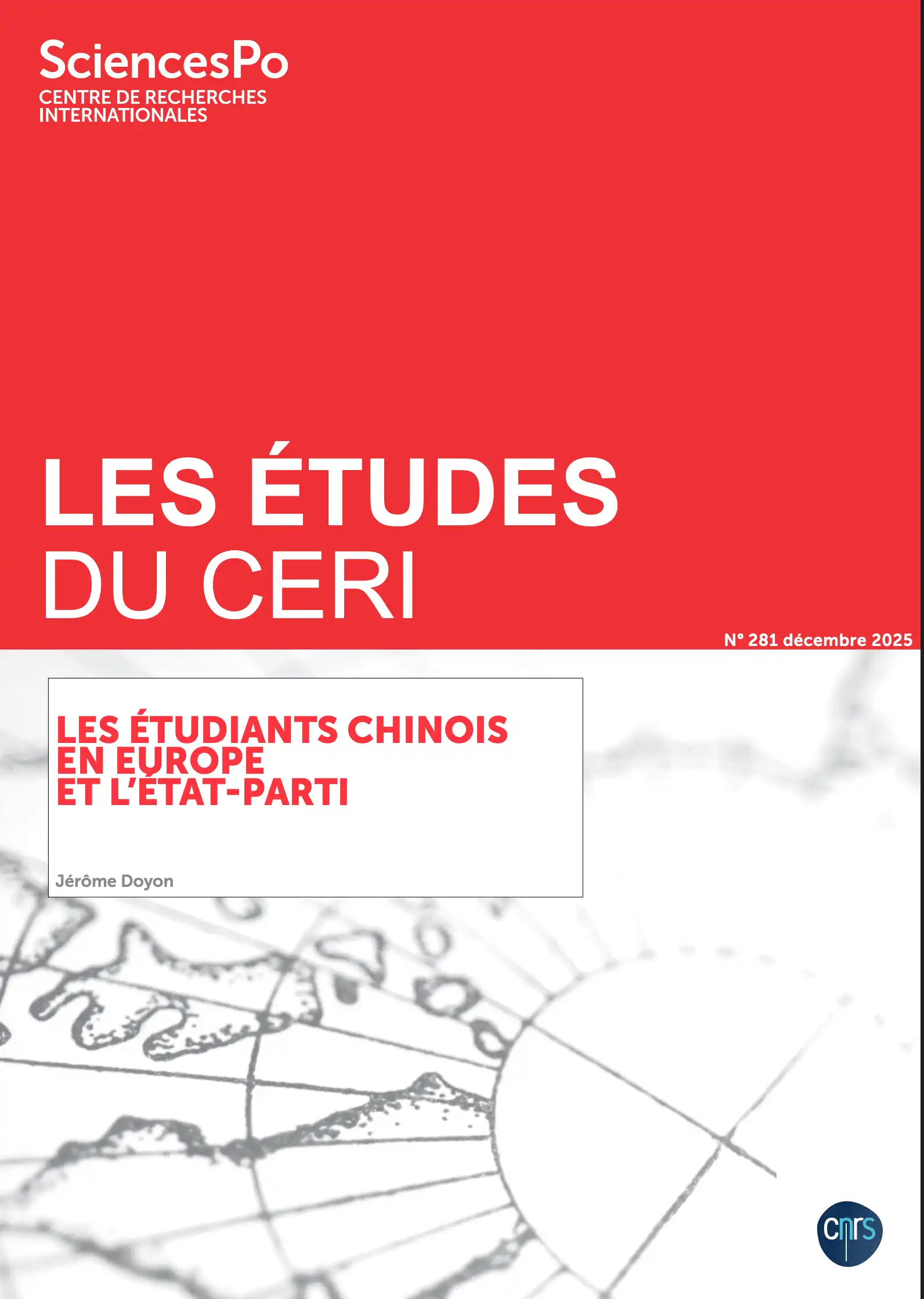
Home>Publications>Les Études du CERI
Les Études du CERI
Les Etudes du CERI are distinguished by their ability to provide analyses that are both enlightening to non-specialists and suitable as a reference for researchers. Irrespective of the theme – whether a major global issue or a specific "local" development – each volume adheres to the standards of a peer-reviewed scientific publication, with double-blind peer review undertaken during the selection of texts. Another notable aspect of this collection is that each issue is the result of field research conducted by the author.
In addition to monographs, the series includes two annual collective publications, one devoted to Latin America and the other to Eurasia. All volumes published since 1995 are available in open access on HAL.
Editor: Judith Burko, tél. +33158717004
Latest publication
Étude 281 - December 2025 / Jérôme Doyon
Chinese Students in Europe and the Party-State

Why do some Chinese students who choose to study abroad get involved in pro-regime organisations? How does this reflect the efforts of the People’s Republic of China to foster relationships of dependence and allegiance with its overseas nationals? Fieldwork conducted within branches of the Chinese Students and Scholars Association in France and the United Kingdom sheds light on the drivers of this form of long-distance authoritarian commitment. An analysis of how the association operates in two different European countries reveals how it adapts to the local environment while functioning as an enclave, isolated from host societies. The organisation’s primary objective is to maintain the Chinese partystate’s hold over its nationals outside national borders rather than influence or develop ties with foreign societies. However, students do not passively allow themselves to be co-opted, and the many pressures they experience can hinder efforts to mobilise them in support of the regime.
Étude 281 - Jérôme Doyon
Chinese Students in Europe and the Party-State
Follow us
Contact us
Media Contact
Coralie Meyer
Phone : +33 (0)1 58 71 70 85
coralie.meyer@sciencespo.fr
Corinne Deloy
Phone : +33 (0)1 58 71 70 68
corinne.deloy@sciencespo.fr
